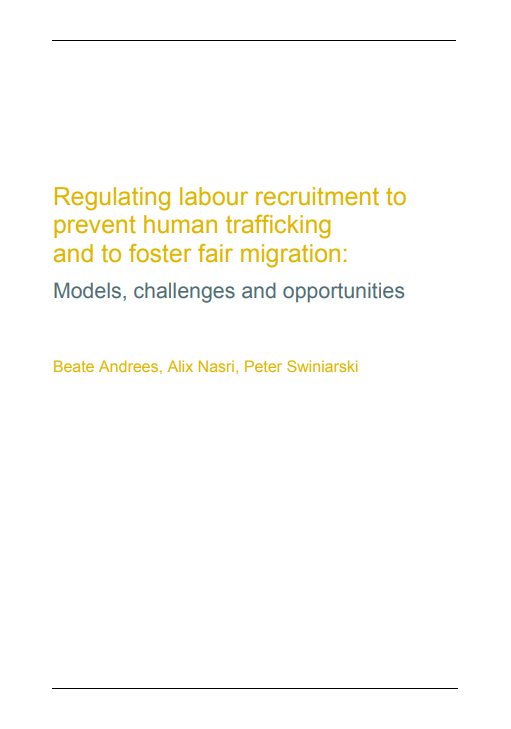Preface
Fundamental principles and rights at work are at the core of ILO’s decent work agenda. The ILO Declaration on Fundamental Principles and Rights at Work and its follow-up was adopted by governments, workers and employers at the International Labour Conference in 1998. The principles and rights enshrined in the 1998 Declaration – respect for freedom of association and collective bargaining and the elimination of child labour, forced and compulsory labour and discrimination at work —are recognized as universal human rights.
The Fundamental Principles and Rights at Work Branch (FUNDAMENTALS) provides leadership and knowledge to sustain and accelerate progress towards the full realization of those rights worldwide. A central component of its integrated Strategy (2015-2020) is to further enhance global understanding of effective policies in order to build a solid human rights and business case for the promotion of fundamental principles and rights at work. The strategy recognizes the importance of research on labour recruitment and employment practices as a basis for more effective laws and policies to prevent violations of fundamental rights at work.
This working paper has been published as part of ILO’s Fair Recruitment Initiative announced by the Director-General in his report to the International Labour Conference in 2014. This multi-stakeholder initiative is implemented in cooperation with the ILO’s Labour Migration Branch (MIGRANT) and many international, regional and national partners. As such, it is also an integral part of the ILO’s Fair Migration Agenda, which seeks to broaden choices for workers to find decent work at home and abroad, with full respect of their human and labour rights.
An important pillar of the Fair Recruitment Initiative is to advance and share knowledge on policies, laws, emerging practices and challenges related to the recruitment of workers within and across countries. We hope this working paper will stimulate further discussion and effective action to foster fair recruitment practices, prevent human trafficking and reduce the costs of labour migration.

